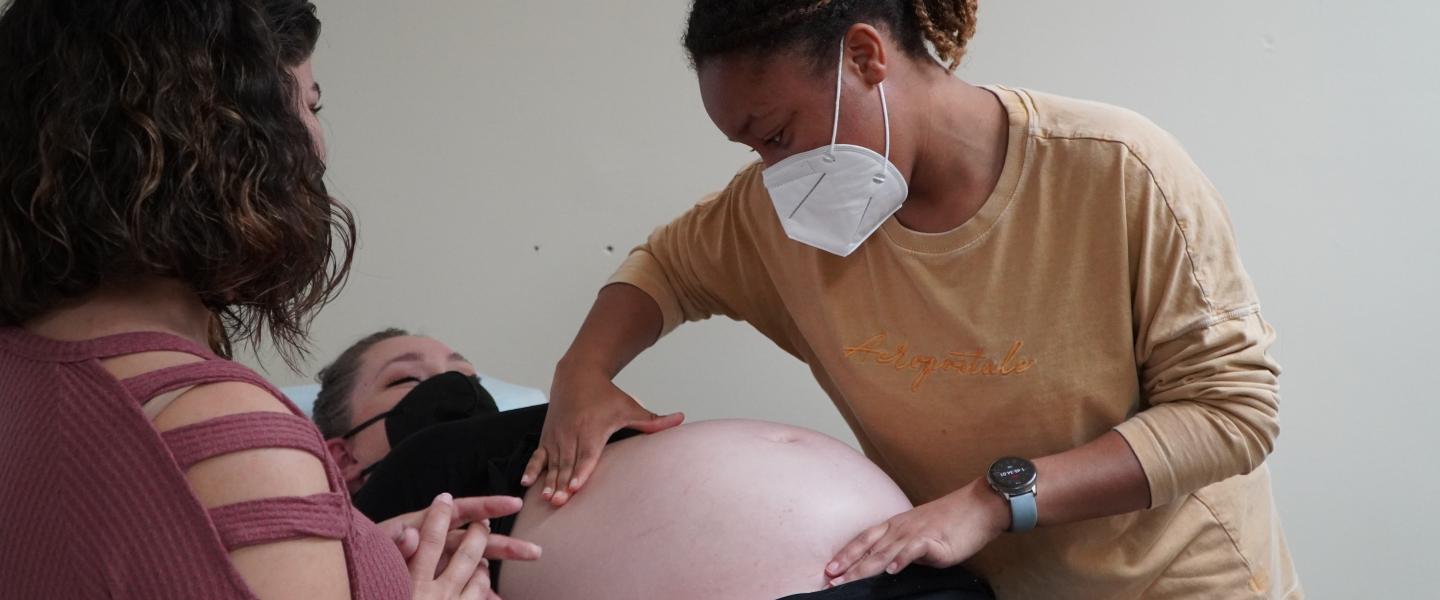In the landscape of integrative medicine, particularly in the area of childbirth and maternal care, the roles of doulas, midwives, and OBGYNs come to the forefront. These three professions, while distinct in their responsibilities and areas of focus, collectively aim to provide a supportive, respectful, and compassionate experience throughout pregnancy and childbirth.
Understanding the specific functions, similarities, and differences between these roles is essential. This knowledge not only guides future medical professionals but also aids individuals and families in making informed decisions about their healthcare during pregnancy and childbirth.
Doulas, midwives, and OBGYNs bring different levels of care and have different specializations, but they share a common goal: to enhance the childbirth experience. Exploring their roles further will clarify their unique contributions and how they navigate within the broad scope of integrative medicine.
What Does a Doula Do?
A doula provides emotional and physical support throughout late pregnancy, childbirth, and the early postpartum period. They offer guidance on the birthing process, help with household tasks and childcare when needed, and ensure effective communication between clients and medical care teams. Additionally, doulas play a crucial role in easing anxiety during labor and supporting new parents after birth.
What Doesn’t a Doula Do?
Doulas are not qualified to deliver babies, as their primary focus is on providing non-clinical support and fostering a positive birthing experience.
What Does a Midwife Do?
Midwives specialize in pregnancy, childbirth, postpartum, and newborn care for people with low-risk, healthy pregnancies. They provide education and support throughout the entire perinatal period. They help clients maintain their health, monitor fetal growth, and deliver babies in various settings, from homes and freestanding birth centers to hospitals. Post-delivery, midwives continue to provide guidance, particularly around breastfeeding and adjusting to parenthood.
What Doesn’t a Midwife Do?
Midwives do not handle high-risk pregnancies or labor without a more comprehensive care team. They also do not administer epidurals or perform Cesarean sections.
What Does an OBGYN Do?
OBGYNs specialize in reproductive care throughout a person's life, including pregnancy, childbirth, and care after delivery. They provide support to those experiencing high-risk pregnancies, diagnose and treat medical conditions, and perform ultrasounds and other tests throughout the perinatal period. Additionally, OBGYNs are qualified to perform surgeries.
What Doesn’t an OBGYN Do?
OBGYNs typically work within hospitals or clinical care facilities, and their broader scope of responsibilities might not allow for the same individualized long-term care provided by midwives or doulas.
Doula vs Midwife vs OBGYN: What’s the Best Career Path?
Choosing between a doula, midwife, or OBGYN as a career path is an introspective process. At Bastyr University, we encourage prospective students to consider personal, academic, and career-related factors when deciding upon their future roles in integrative medicine.
The Role of a Doula: Nurturing and Empowering
If helping clients navigate childbirth, providing physical and emotional support, and playing a pivotal part in crafting a positive birth experience resonates with you, a career as a doula might be the right path for you. Doulas are steadfast companions to their clients, often fostering deep connections and trust.
Additionally, the career path of a doula might not require as extensive a formal education as that of a midwife or OBGYN. However, certification and training are essential, ensuring that doulas equip themselves with the necessary knowledge and skills to support clients effectively.
The Role of a Midwife: Enhancing Maternity Care and Driving Change
For those who wish to dive deeper into the clinical aspects of childbirth while still retaining a personalized approach, a career as a midwife could be an excellent fit. Midwives are essential drivers of change in maternity healthcare. Their role addresses the prevailing maternity care crisis in the US by offering a compassionate, holistic, and scientifically sound choice.
As a midwife, you will help clients during their pregnancy journey, monitor their health, deliver babies, and provide postnatal care. This career choice requires a higher level of education than that of a doula but generally less so than an OBGYN.
The Role of an OBGYN: Specializing and Leading
For those who want to work in the medical depths of reproductive healthcare, a career path as an OBGYN may be the best choice. OBGYNs are highly trained medical doctors specializing in all aspects of reproductive health. Their role extends to providing care during high-risk pregnancies, diagnosing and treating medical conditions, and performing surgeries and interventions.
Taking the journey to becoming an OBGYN involves more years of schooling, including undergraduate studies, medical school, and a residency program. However, the vast and diverse medical knowledge obtained and the potential for higher earnings can be significant rewards
Remember, your career path should align with your passion, willingness to invest in education, and your envisioned contribution to the field of integrative medicine. At Bastyr University, we support you by providing science-based education that embodies respect for all forms of life and dedication to the wellness of our communities.
Bastyr University’s Master of Science in Midwifery
Bastyr University offers a Master of Science in Midwifery program to support future leaders in integrative care. Encouraging growth, innovation, and respect for integrative practices, our program emphasizes the integration of body, mind, and spirit. We invite you to explore our midwifery program by downloading our eBook, requesting more information, or applying.
Together, we can empower individuals to heal, thrive, and transform the health and well-being of our communities.
